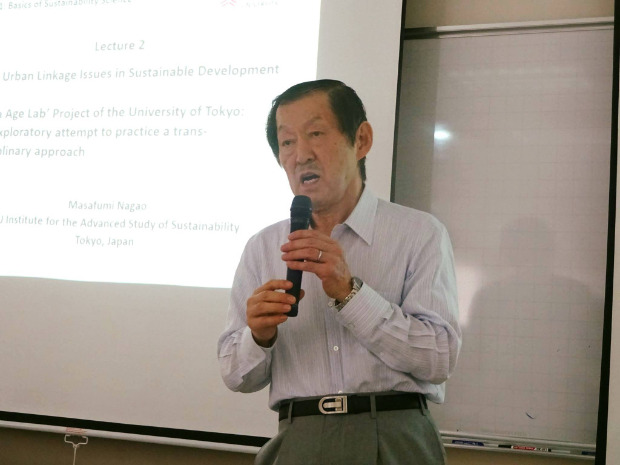“Vietnam is a special country to me. I had been to Vietnam for social work so I could speak Vietnamese. I was 23 years old then and I was not able to provide much help to the Vietnamese farmers. Therefore I decided that I need to learn more so that I could return to help the farmers in this country”. – Prof. Masafumi Nagao shared his story in the applause from all students of the second cohort of Vietnam Japan University (VNU).
In his second visit to Vietnam, Prog. Masafumi Nagao is no longer a volunteer like 50 years ago. He is now a lecturer who shares his knowledge and actual project experience to the young generation of Vietnam.
For “Fundamental Sustainable Science”, it is crucial that the learners are equipped with certain level of knowledge on sustainable science.
Two identical trends exist in the sustainable science: Science of sustainability and Science for sustainability. While the former – Science of sustainability – is more theoretical with researches on principles and basis of sustainability, the latter – Science for sustainability is more practical and covers researches on sustainable development.
Researches on sustainable development is divided into two categories: For whom is the sustainable development? (Results) and Who conducts sustainable development? (Process).
Various programs and workshops on sustainable development were held in the world and reflected these two features. For example in 1987, the Brundtland Commission coined sustainable development as the kind of development that allows all generations – both current and future – to access to the same amount of natural resources (for whom? – Results). In 1992, the Rio summit included sustainable development in its agenda with the hope that groups of people of the same generation would have the opportunity to access to natural resources (For whom? – Results). In 2002, the Johannesburg summit discussed who would conduct sustainable development (By whom – Process). In 2012, the Rio +20 summit concluded that sustainable development is not the issue of developing countries but a topic that requires efforts of all countries in the world (By whom? – Process). In 2015, sustainable development goals (SDGs) were established in the UN Sustainable Development Summit.
SDGs are considered the new starting point of the efforts for sustainable development. The SDGs’ 17 objectives and 169 indicators cover the following underlying core values: Green, comprehensive and adaptable development; global-scale sustainability; and multi-agency partnership administration. We are witnessing many social changes after SDGs adoption, notably longer period of development and strategic planning (15 years), the shift from sectoral, multi-sectoral to inter-sectoral mindset and the increasing role of science.

Photo: Prof. Masafumi Nagao during the lecture
The on-going global trend of sustainable development requires active adjustments of all individuals and entities in the society, including universities.
Prof. Masafumi Nagao divided the challenges that higher education is facing with into three categories: Functional, structural and administrative challenges. These challenges are mainly comprised of the issues that many universities are or will have to take into consideration. We can take an example of functional challenges: the universities are used to pursue only one of the three functions of research, education or public service; nowadays they have to undertake all these functions due to the complex emerging issues. They even have to choose between conventional or new orientations to meet social demands, e.g. academic studies or practical researches, intensive or extensive education, specialized or comprehensive education, evaluation based on university’s standards or social standards, etc.
To address such challenges, the universities need to reform with special attention paid to the followings:
– Active transformation within the universities to the fulfillment of global sustainability requirements and demands;
– Focusing on the provision of new knowledge and competence in leadership, scientific and technological research and innovation to young generations, including future researchers, educators and enterprises.
In his presentation on the university’s reforms, Prof. Masafumi Nagao highlighted the inter-sectoral approach and organizational reforms that helps to go beyond the university studies into practical application.
In conclusion of his lecture, Prof. Masafumi Nagao acknowledged that all university’s reforms aim to ensure the fulfillment of higher education’s strategic role in “sustainable development period”. This is also the issue that Vietnam is facing with and VJU students “should be proud as you will be the generation that leads this sustainable development process”.

